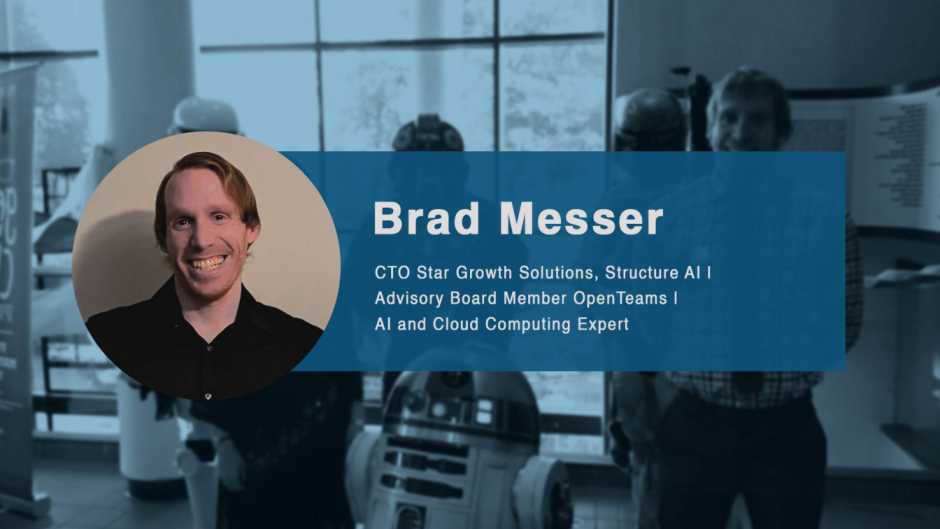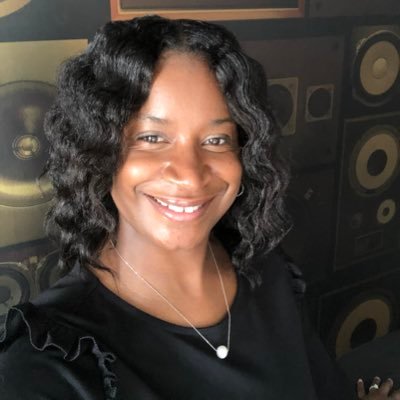Blue Ocean: Tell us about your professional life. Why did you choose to work in this industry?
Brad: When I was in college 10 years ago, I was diving into a network security specialization. I had this idea of heading straight into the world of network security. But the professors couldn’t quite help me pull everything together for the practical experience I needed.
I could’ve taken a different path but shifted gears toward data science and AI instead. The inspiration struck me when I was flipping through Flipboard. It was right around when data science was becoming the talk of the town. I caught a glimpse of how applied math was changing the game for people and how they were planning to put it into action, which inspired me a lot.
Over the next year and a half, I took every course possible, even if it was slightly off my trajectory. I brought all that newfound knowledge over to IBM. I rolled up my sleeves and got involved in their mainframe analytics and AI strategy for eight years – good times, I must say.
I experimented with different things at IBM. I struggled a little trying to fit into the brand and the roles. Not every role is tailor-made for everyone. Still, I met some amazing people along the way. With a clear picture of what I wanted and needed, I decided to pivot. Entrepreneurship was my calling, and I took the plunge.
Now, I’m on this path because I believe I’ve got something special to offer. I want to make a difference in the community and see what I can do for my surroundings.
Blue Ocean: What does your typical day look like?
Brad: I like to work every day. If I’m awake, I’m working. That’s just me. But I’m not going to make others feel less for not doing the same.
Surprisingly, my career took off way faster than I thought possible. I did not think that anything would ever resolve the way it did. It didn’t fit my mental model, but that’s life. Now, I often find myself juggling different companies and brainstorming new business ideas.
I also do some influencer work along with my responsibilities as Chief Technology Officer. I believe people can work at their own speeds without feeling unhealthily pushed, and that is what I am trying to do.
Sometimes, it’s a tricky balance of trying not to overdo it. But there’s the perk of being in a position to lead teams that can work to execute and get things done, as they’re likely more experienced and better equipped than I am. That is the kind of balance I’m walking in right now.
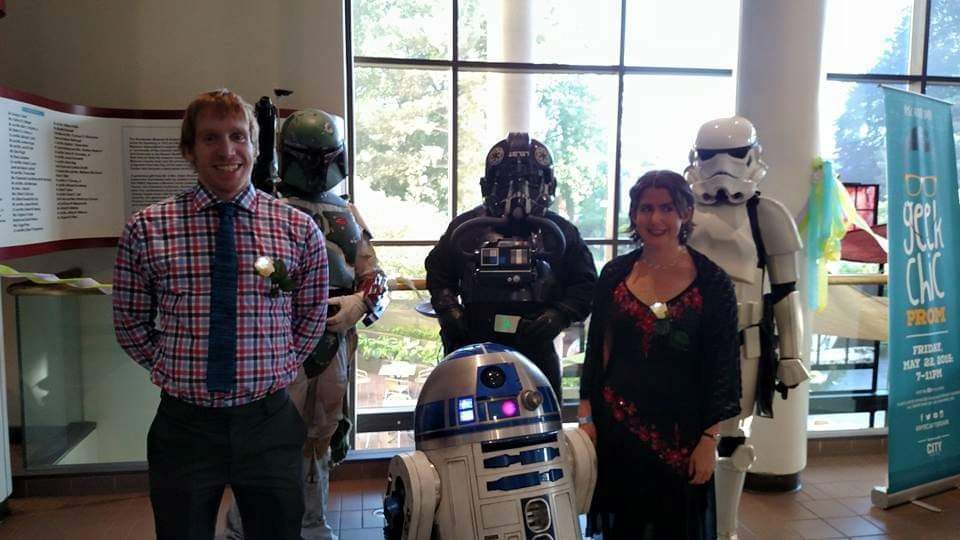
Blue Ocean: What is your advice to your younger self?
Brad: So, there’s this dichotomy. I gave up an excellent position at IBM to dive into the unknown, not knowing what I was getting into. The people I’d meet, the day-to-day job – it was all a mystery.
And, I had no idea which skills I was actually going to use. I educated myself in a lot of different areas, but now I am in a strategy role where I don’t necessarily use all of that. I’ve got to be able to communicate ideas, but I don’t have to necessarily be the one to execute the plans.
I felt like I put in all this effort, but now I’m in strategy. It’s just a natural order – you start as an associate, get better, find your footing, then level up and become a team lead, manager, and beyond. You can then choose the business route or the technical route, and both have their own tracks. Shifting from a more hands-on to a strategic role is natural. For some, it’s a great move, but for others, not so much. It’s all about what you want your career journey to be, within a company, hopping between them – there are endless possibilities, really.
And nothing’s crystal clear and depends on what you do. Oftentimes, you love the people you’re working with, but you hate the work. So you try to get the hang of it or to separate those feelings. It took me about four years trying to understand why I was not getting what I wanted and why I chose to stay.
It’s because I love the people. Yes, I don’t like the work, but I love the people, so I move on. And that is not a bad thing, but being able to find the balance between those things really took a lot of self-work.
Blue Ocean: What, according to you, makes a great team?
Brad: I’m really into operating at a high level—which can be subjective for different people.
I like stretching my operational hours and having the flexibility to do so. I also like to have a few billion-dollar business ideas. When I dive into a bit of quick market research, it’s clear that there’s potential to keep growing. It doesn’t mean the idea will be a guaranteed success, but there’s definitely potential.
So, having that space to grow, especially over the long run, is super motivating. Plus, being able to do this across a few different businesses is what makes it even more inspiring.
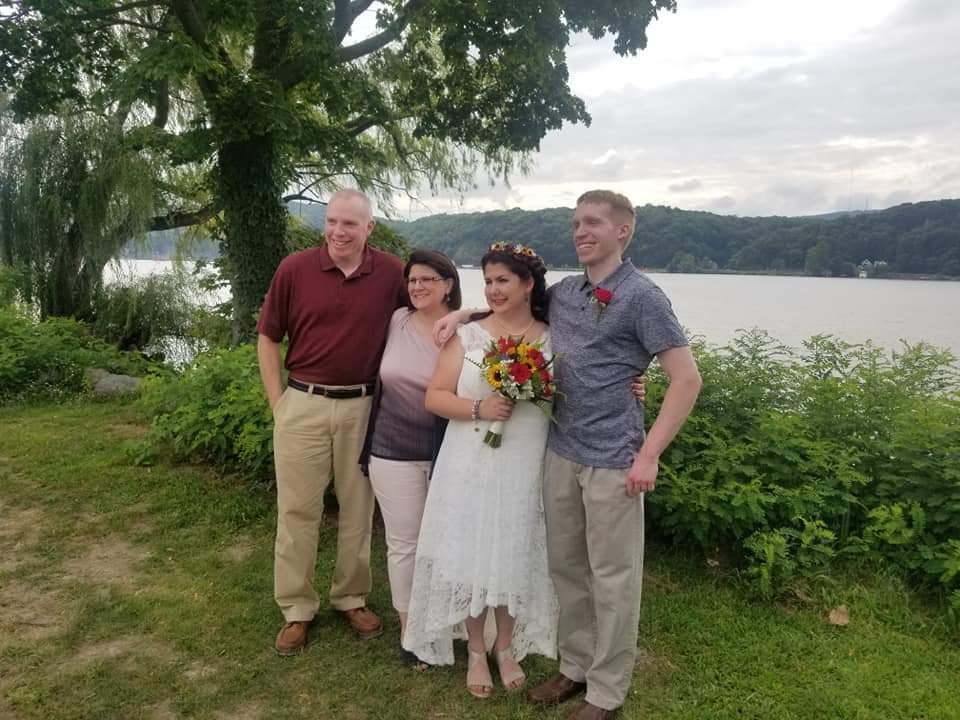
Blue Ocean: What is something unique you offer your clients?
Brad: First and foremost, I believe in the grand scheme of things, you will probably never offer anything entirely unique. There’s a good chance someone, somewhere, has thought of a similar idea as yours.
I am always open to that process, and even find delving into vertical integration interesting. And of course, the readiness to roll up your sleeves and put in the grind to reach your goals is something I’m serious about. If I say I will commit a hundred hours, it’s going to be a full hundred hours.
Essentially, original ideas are a sort of rarity. But, the way you present them and the effort you pour in are just as much a part of what you’re giving to your client.
Blue Ocean: Earlier, you mentioned your unique quality of hard work and dedication. Would you say that’s what has differentiated yourself and underpins your success?
Brad: I’d say, yes, that’s what sets me apart from most people I talk to. Sure, there are others who put in the same amount of effort, so I’m not trying to act like I’m the only one. But overall, it tends to be a competitive differentiator.
Blue Ocean: Previously, you mentioned being in a strategic position and helping others. Could you provide some specific examples where your strategic experience has influenced your current professional approach?
Brad: So, I have been getting settled into my career over the past few months, and I’m still getting used to it. As I progressed, my viewpoints on handling things have evolved. I express my thoughts openly—I won’t claim I am always right but I am starting to speak up. Learning when and where to speak your mind, as well as knowing when to seek input from coworkers, is a skill in itself. Asking, “What do you think of this wild idea?” is valuable. It’s about finding that balance and having a foundation to drive change, no matter your level or title. That’s a crucial aspect of growth.
Blue Ocean: How do you stay informed about industry trends and developments?
Brad: A big part of staying informed is being committed to continuous learning and knowing that you can’t know it all. You need to let people teach you.
I try to attend as many events and take up as many diverse courses as possible. I’m up for exploring various ideas, and seeing what pans out. Staying updated on industry trends is my passion—places like Gartner and top firms like Deloitte offer some good insights. Even the big tech giants share valuable stuff.
Sometimes there are smaller shops with a good rep that you can trust too. Let’s take Andrew Ng, for instance, the brains behind Coursera and deep learning AI. With his background in Google Brain and helping out with Baidu, his courses on Coursera become a solid choice backed by experience. When something’s super in-demand like the open data science conference, that’s where I aim to get in. They always rope in the big names, so it’s about picking the right place and person to learn from.
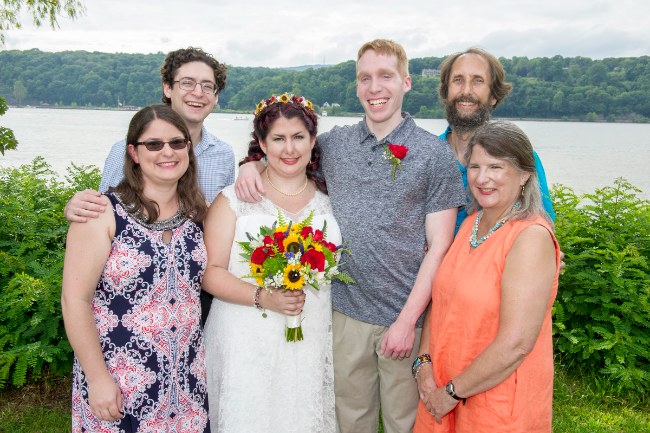
Blue Ocean: How do you handle negative feedback?
Brad: Feedback is a very tricky thing. There’s a large number of types of personalities. Understanding these personalities around you, being able to respond to their human needs, and being kind about it without stepping on toes is what matters. It’s about you viewing it through a protagonistic lens instead of an antagonistic lens.
If you view it through a protagonistic lens and give someone good feedback in a loving manner, that will help them grow. But if you give them feedback through an antagonistic lens, you will likely lose the connection with that person. And if this keeps up, you will have some souring relationships across the board. And no one wants that.
Two books have helped me understand this psychology and they’re absolute gold. The first one’s called “Leadership and Self-Deception: How to Get Out of the Box.” And the other one is, “Surrounded by Idiots: The Four Types of Human Behavior and How to Effectively Communicate with Each in Business (and in Life).”
Of course, it is not about actually thinking people are idiots; it’s more about understanding their unique mindsets. Wrap your head around this: you can have two opposing views, and both may be right. Navigating that idea to an outcome itself is a huge challenge.
It’s a tricky situation. Will giving feedback change things? Are they hitting their goals? It’s like a rabbit hole with no end. But, it’s something that you learn through experience and repeated practice and study.
Life isn’t just a giant experience box, and it isn’t just a bunch of theories either. You need both to figure out your path. It’s like trying to bake a cake without a recipe or just reading recipes without baking. You need a dash of both to whip up something great. So, balancing those theories and experience is what you need to get where you’re aiming for.
Blue Ocean: Tell us what you are grateful for.
Brad: I’m truly thankful for the relationships that have been a big part of my life. Getting to a place of happiness requires a ton of effort, and that effort takes time. Finding people who stick with you through it all is pretty tough, and as you gain more experience, things change.
You might even get reactions from people that catch you off guard. It’s definitely a challenge, something you need to handle. But I’m also really greateful for the awesome human relationships I’ve built.
Honestly, I think everyone should feel grateful for the lives they’re living and the relationships they’ve made along the way.
Blue Ocean: What are your sources of inspiration to thrive in a competitive environment?
Brad: For me, it’s about what we can do for the community. Despite the ongoing challenges like layoffs and widespread fear, there are also a lot of opportunities and work to do. This is what truly inspires me – the ability to tap into these possibilities and drive progress. It inspires me to move forward to really help – form teams, form businesses, and just move everything forward.
Even in these uncertain and sometimes daunting times, remembering that there is a way through and you don’t have to be scared is important. It’s just a matter of finding a way. And don’t get me wrong; it gets really scary at times. But being able to move forward in that kind of situation is a huge thing.
Blue Ocean: How do you motivate the people around you?
Brad: I look at motivation and problem-solving in two ways. On one hand, I’m a problem-focused leader, addressing issues head-on. At the same time, I’m all about recognizing the potential for positive change. I believe in being upfront about challenges without sugar-coating them. So I never try to hide the obstacles; I want everything to be out in the open. Sure, it might seem a bit awkward in the short run, but we can make it better in the long run.
Right now, there’s a lot of concern about how AI could impact the economy, and that’s a valid concern. On the other hand, AI can also make a number of positive contributions to the economy. Once we have built up some initial funding, we can support even bigger ideas that will make the situation better for people.
That’s why I’ve always believed in designing the life you want and letting things naturally fall into place.
There are times when you start questioning it. But you need to have some faith. It’s a balancing act, mixing faith with solid evidence. The relationship between the two isn’t crystal clear, but it’s definitely something worth exploring.
Blue Ocean: When you have time outside your work, what passions or interests do you pursue?
Brad: I usually find myself somewhere in between various interests. I enjoy video games, and I definitely like to get out for fitness as much as I can. I’ve been weightlifting for 17 to 18 years, ranging from traditional bodybuilding to CrossFit and even Olympic weightlifting. Alongside these physical activities, I also find time to read books. I like to keep myself occupied with such diverse activities.
Do you have a personal or professional story that can inspire other people into becoming the best version of themselves?
You are welcome to share your journey with our audience.

